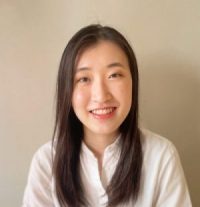
October 27, 2022, by khyx2lyn
My summer internship at the University of Nottingham UK
Article by Nicole Koh
During my second-year summer, I signed up for the physical research internship offered by the School of Psychology UK campus. It was a great opportunity to experience working with scientific equipment that were not readily available in the Malaysian campus, as well as a chance to explore a more extensive range of psychology topics related to the specialty area of your supervisor. I worked with Dr Nick Holmes, a British professor who specialises in hand-related research, including areas such as hand motor-coordination and tactile-spatial perception. He even has his own hand-specific laboratory called “HandLab” where most of our research was conducted.
As his research projects often involve the use of multiple instruments, I spent the first two weeks undergoing intensive training with relevant equipment, including how to use the Transcranial Magnetic Stimulation (TMS) coil, positions for attaching electrodes on specific hand muscles, translating MRI brain scans to locate the primary motor cortex, and learning how to read and monitor motor evoked potential (MEP) responses from hand movements. It was invigorating to be involved in experiments which demanded much active engagement from the experimenter’s part to ensure data collection was reliably and accurately recorded. Often times, electrodes recording hand muscle activity would loosen due to natural sweating or technical difficulties such as MATLAB script errors and the overheating of TMS coils would require us to remain attentive throughout the experiment process.
Alongside Nick, I worked with two other PHD/Masters students, Valentina and Isabelle, as well as another undergraduate intern, Maria, as I assisted in their research projects as deemed fit. I was mostly involved in assisting Valentina on her research project which aimed to investigate how hand grip force control varies across developmental ages while receiving TMS interference at their primary motor cortex. Her study provides insight as to how lesions at the specific areas in the primary motor cortex may affect one’s ability to anticipate grasping motions and the degree of grip force required to achieve everyday goals (e.g., grasping mugs, playing ball sports), a challenge often faced by stroke patients or children with developmental coordination disorder (DCD). Overall, the research topic felt meaningful and relevant on a personal level as I tried to reflect how I might explore motor coordination disorders among the paediatric population as part of my future postgraduate in clinical psychology.
During the remainder of my free time, I would often explore the attractions around the city such as the Nottingham Robin Hood Castle, go for walks at the many gorgeous parks available in the UK, or café hop while basking in the UK summer weather that often thread between perfectly warm or confusingly windy and gloomy. Furthermore, I had the golden opportunity to attend the Pride Parade held at London and Nottingham around late July. Attending Pride had always been a bucket list item for me so it felt surreal to experience the warm and enthusiastic atmosphere as the cheering crowds celebrated one of the biggest liberation movements in human rights history. Additionally, I became acquainted with local drinking culture as Nick would often bring us out for drinks at the local English pubs as a reward after a long week of experimentation. For the first time in my life, I experienced a lifestyle that felt enriching both on an academic and personal level, where I did not feel compelled to sacrifice my personal time or enjoyment for the sake of my academics or career development. In fact, such as sacrificial relationship with work is often frown upon in the UK and EU, with my supervisor reminding us to take adequate breaks and preventing us from working past 6 pm. Finally, I took a 3 week long solo trip around Europe upon the end of my internship. It was my first solo trip where I created unforgettable memories with new people as we experienced European culture with a heap of curiosity, whimsicalness, and wonderment.
Upon my return to Malaysia, I felt empowered to embrace a more balanced lifestyle, prioritising activities that felt personally fulfilling on both a physical and mental aspect. Conversations with strangers and new people now feel less daunting than it did previously as I learnt that most people would appreciate a pleasant conversation with a polite stranger. I had the chance to experience a portion of the exciting UK studying experience that exchange students often talk about, without staying long enough to experience the dread of feeling homesick. It felt like a true Goldilocks experience. Although it was challenging at times living aboard with all the adulting and uncertainties that comes along with it, I do not regret having taken this internship and would definitely recommend to anyone who would be keen on challenging themselves beyond their comfort zones. If you would like to know more, I have made another post tackling some of the frequently-asked-questions students have on the internship.
-
Post a comment
